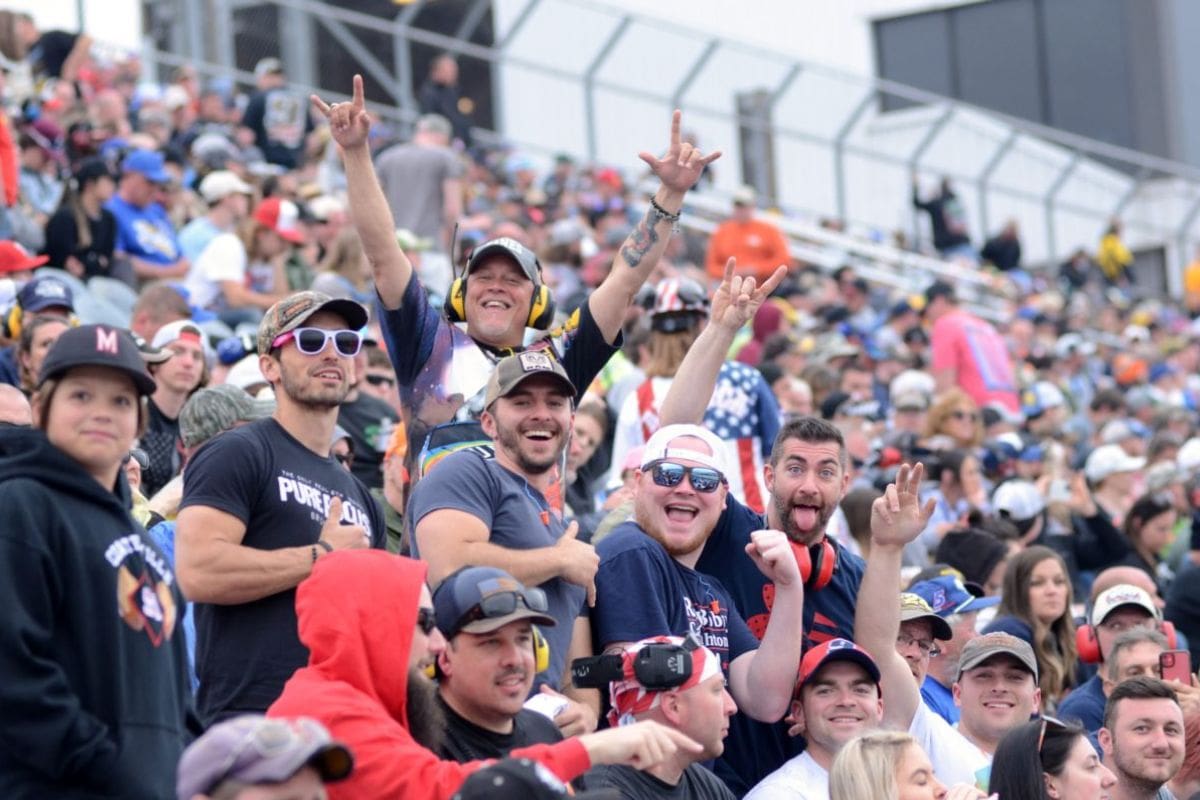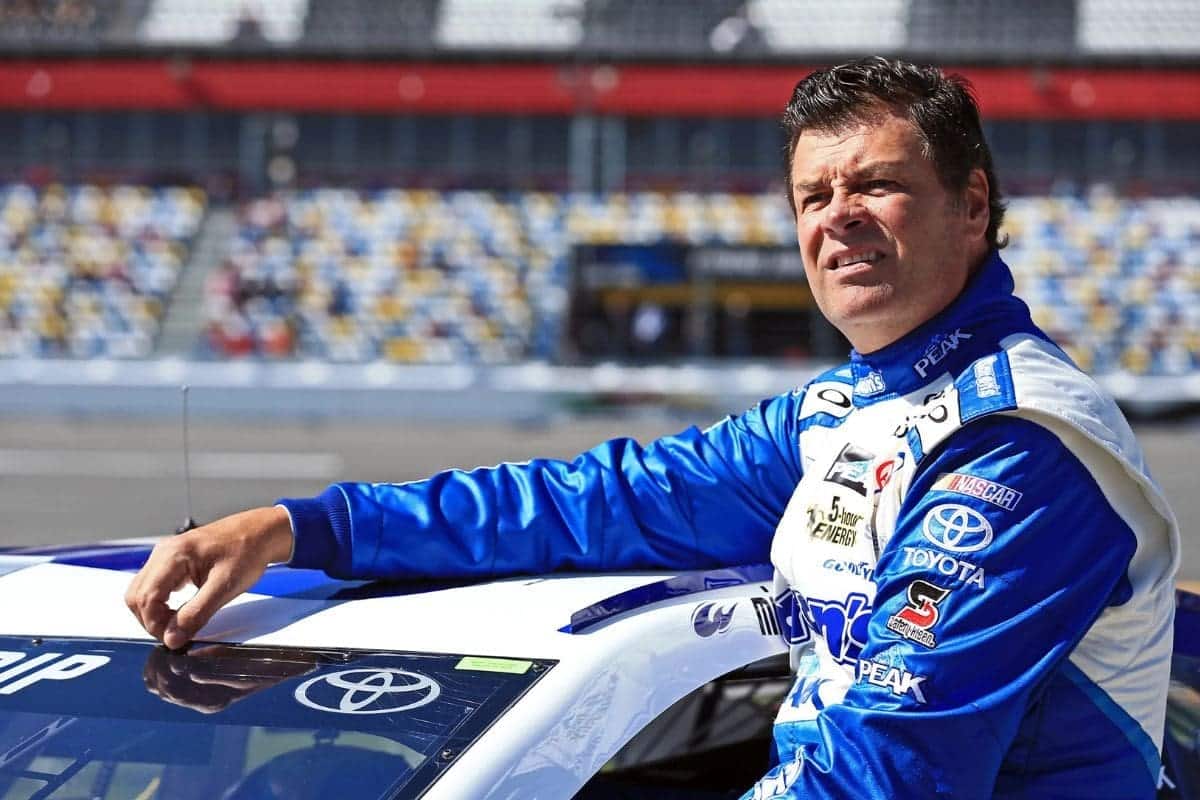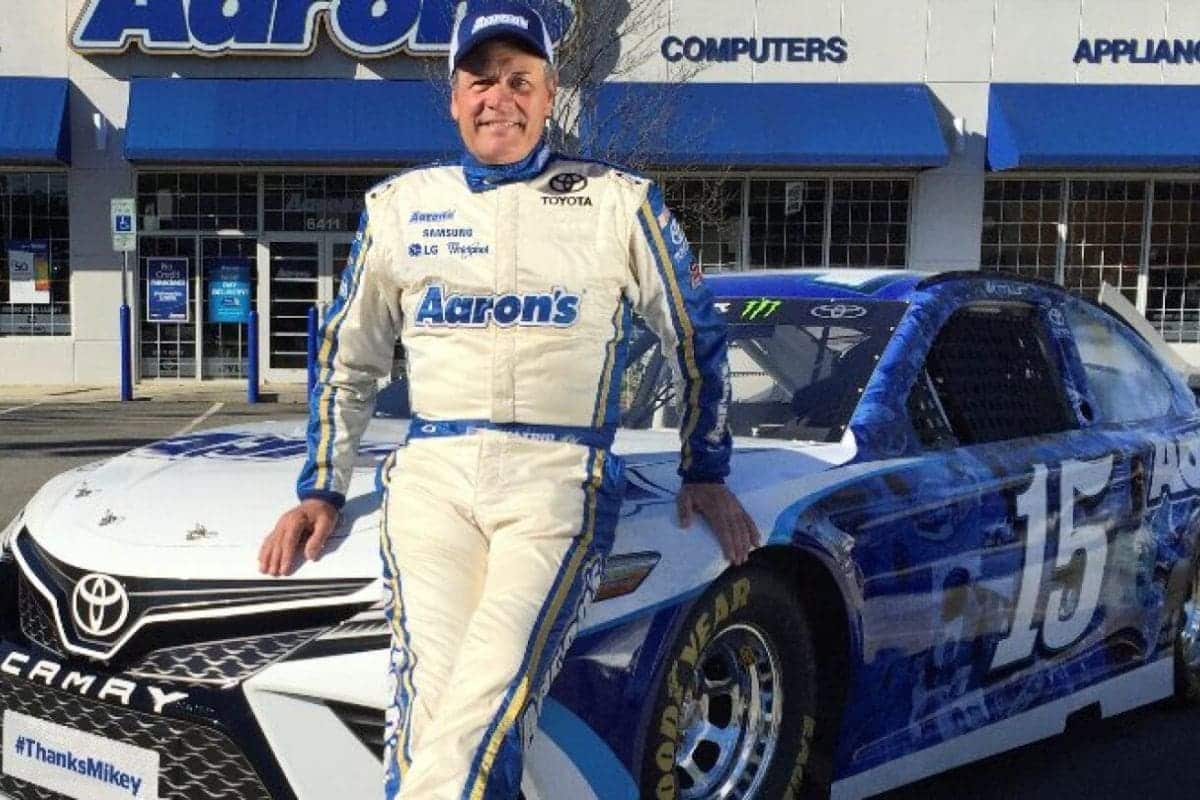NASCAR Fans Slam Michael Waltrip: The recent controversy surrounding Michael Waltrip’s suggestion to reduce engine noise in NASCAR’s Next-Gen Car has sparked a fervent debate within the racing community. Fans have taken to social media to express their dissatisfaction, arguing that the natural roar of the engines is an aspect of the sport’s allure. This strong opposition from the fanbase raises critical questions about the balance between modern advancements and preserving the traditional elements that define NASCAR. As we investigate this complex issue, it becomes crucial to examine the diverse perspectives and potential implications for the future of the sport.
Key Highlights
- Fans overwhelmingly prefer the traditional, thunderous engine sounds, viewing them as integral to NASCAR’s thrilling atmosphere.
- Substantial resistance to quieter engines is voiced on social media, highlighting the cultural significance of loud engines in NASCAR.
- Michael Waltrip’s noise reduction proposal faces backlash, with fans concerned about losing the sport’s raw, electrifying nature.
- Critics argue that quieter engines might dilute NASCAR’s distinctiveness, undermining the excitement that defines the racing experience.
- Fan sentiment is crucial, and many believe reducing engine noise could alienate lifelong supporters of the sport.
The Debate Over NASCAR’s Next Gen Car
The introduction of the Next Gen car in NASCAR has sparked a controversial debate among fans and industry professionals. This debate focuses on its aerodynamic design, increased weight, and reduced engine power. These changes, intended to modernize the sport, have not been universally welcomed.
Critics argue that the new aerodynamic features compromise the spirit of stock car racing, traditionally known for its raw, unrefined nature. The streamlined design, while enhancing performance, is perceived by some purists as a move towards homogenization, diluting the distinctiveness that has long defined NASCAR.
The increased weight of the Next Gen car also raises concerns. Heavier vehicles tend to exhibit different handling characteristics, potentially altering race dynamics. This shift could challenge drivers accustomed to the lighter, more agile cars of previous generations. There is an ongoing debate about whether these changes might diminish the skill component, making races more predictable and less entertaining.
Moreover, the reduction in engine power has been a particularly polarizing issue. The move towards less powerful engines is seen by some as a necessary step towards sustainability and cost efficiency. However, critics argue that it strips away the visceral excitement that comes from high-horsepower machines roaring around the track. The sound and fury of powerful engines are integral to the NASCAR experience, and reducing engine power could, in their view, erode the sport’s identity.

Calls for Quieter Engines
Amidst the broader debate surrounding NASCAR’s Next Gen car, a notable point of disagreement has emerged regarding the call for quieter engines. Former driver and commentator Michael Waltrip has been vocal about his demand for reducing the deafening noise levels traditionally associated with NASCAR vehicles. On his social media platform, Waltrip expressed his longstanding view, stating,
“I’ve been an advocate of turning down the deafening noise of the engines for years. They are ridiculously loud. I proposed handing the sound of the cars project off to manufacturer partners. Create a decibel level that engines must meet. Give each brand their own unique sound.”
Waltrip’s proposition emphasizes a regulated approach where each manufacturer can engineer a distinct yet quieter auditory signature for their vehicles. This perspective aligns with the broader trend in automotive engineering, prioritizing technological innovation and noise reduction, which could potentially improve the spectator experience by making races more accessible to a wider audience, including families and individuals sensitive to loud noises.
Adding to this viewpoint, Irish-Australian automotive businessman Roland Dane, who recently attended a NASCAR Cup Series race at Sonoma. Dane was cheering for his Supercars drivers, and to his delight, Van Gisbergen put on an impressive winning performance. Dane, known for his involvement with the V8 Supercars series, observed the excessive engine noise as an area where NASCAR could benefit from reform. His critique stems from a comparative analysis of the two series, suggesting that controlling the robust sound of engines could be an avenue for improvement.
“Their cars are simply too noisy. The straight-through pipes are deafening to the point of discomfort, even when some distance away. They share this trait with MotoGP. Both disciplines would do well; just knock off the decibels. The family sitting next to me in the grandstands, huge F1 and IndyCar fans, left their first NASCAR event halfway simply because they and their kid couldn’t handle the noise.” – (Dane)
I’ve been an advocate of turning down the deafening noise of the engines for years. They are ridiculously loud. I proposed handing the sound of the cars project off to manufacturer partners. Create a decibel level that engines must meet. Give each brand their own unique sound.
— Michael Waltrip (@MW55) June 12, 2024
NASCAR is working on developing its own electric vehicle (EV) race car to attract more manufacturers like Honda. However, this effort has been kept mostly secret because fans prefer traditional race cars. When Michael Waltrip suggested a change that could benefit the sport, fans quickly rejected his idea of a silent racecar engine.
Fan Reactions and Resistance
Reacting to Michael Waltrip’s demand for quieter race cars, a substantial segment of NASCAR fans expressed strong resistance, emphasizing their preference for the traditional, thunderous engine sounds that define the sport’s thrilling atmosphere. Fans argue that the roaring noise is an integral part of the NASCAR experience, creating an electrifying ambiance that engages the senses and heightens the excitement of the races.
The sensory experience of a NASCAR race is deeply tied to the auditory thrill produced by engines that often exceed 100 decibels. For many enthusiasts, the sheer volume of the cars is synonymous with the sport itself, embodying its raw power and intensity. Fans have taken to social media and different platforms to voice their discontent, with comments reflecting a widespread sentiment against modifications aimed at reducing engine noise.
Furthermore, the resistance is not purely emotional but also cultural. NASCAR’s history and identity are steeped in the tradition of loud, powerful engines. The sound of the race cars has become a hallmark of the sport, a distinctive feature that sets it apart from other forms of motorsport. Fans fear that altering this aspect could dilute the essence of what makes NASCAR unique and appealing.

Counterarguments and Perspectives
While fans’ resistance to quieter engines highlights a deep-rooted connection to NASCAR’s auditory traditions, there are compelling counterarguments that demand for reduced noise levels, emphasizing safety and broader audience appeal.
To begin with, the most salient point revolves around hearing protection and long-term health. Prolonged exposure to the high decibel levels produced by traditional V8 engines can lead to permanent hearing damage. Although ear protection is available, not all fans consistently use it, raising concerns about cumulative auditory harm. NASCAR’s fuel-consuming V8s are not the loudest vehicles. Dragsters hold that title. An NHRA Top Fuel or Funny Car would definitely win the prize for ear-splitting noise.
“Good lord don’t get near a drag race then. I know it is not for as long of time but ear protection is available. That is part of the thrill of racing.” – (fan reaction)
In addition to health considerations, quieter engines could broaden NASCAR’s appeal. Noise can be a barrier for families with young children and individuals with sensory sensitivities, who might find the current auditory environment overwhelming. By reducing engine noise, NASCAR could create a more inclusive atmosphere, attracting a more diverse fan base and enriching the sport’s accessibility.
“I hear the electric cars are quiet, maybe we should race those. Hell let’s just do all the racing on computers then there’s no loud noises or risk of being injured in crash.” – (fan reaction)
Moreover, quieter engines do not necessarily equate to diminished excitement. Other forms of motorsport, such as Formula E, have successfully captivated audiences despite lower noise levels, relying on the thrill of competition and technological innovation. The focus can shift towards other sensory experiences and the sheer skill of the drivers, potentially enriching the spectator experience in novel ways.
“Yes, take away the roar. Since I cut back once the playoff was implemented then stopped watching completely when stages were introduced, I am sure this is a great way to chase off remaining fans.” – (fan reaction)
Some people suggested that earplugs are a simple solution for those who can’t handle the noise. However, the idea of making the race car almost silent was not well-received.
“This is such an awful take let’s take one of the unique traits of nascar and replace it with some corny mufflers come on wear your ear protection or don’t that’s the choice you have had for years and that’s the choice you should still have.” – (fan reaction)
Future Directions and Conclusion
Looking ahead, NASCAR faces an important point where balancing tradition with innovation will be essential to its sustained growth and appeal. The dialogue surrounding Michael Waltrip’s call to reduce the noise of Next-Gen cars highlights the broader challenge of evolving the sport without alienating its core fan base. As NASCAR considers future directions, several key considerations emerge.
The roaring engines have long been synonymous with NASCAR. Maintaining this auditory signature is critical for retaining lifelong fans who cherish the natural experience of live races. Efforts to modernize and make the sport more accessible to new viewers, including families and younger demographics, cannot be overlooked. Innovations like quieter engines might attract those sensitive to noise, thereby broadening the sport’s appeal.
Embracing advancements, such as electric vehicles, could position NASCAR at the forefront of sustainable motor sports. This shift, however, must be carefully managed to ensure it aligns with the sport’s identity and history. To navigate changes effectively, NASCAR must engage its fan base through transparent communication and inclusive decision-making. Surveys, forums, and pilot programs could provide valuable insights into fan preferences and help mitigate backlash.

News in Brief: NASCAR Fans Slam Michael Waltrip
The controversy surrounding Michael Waltrip’s demand for quieter engines in NASCAR’s Next-Gen Car highlights the intricate interplay between innovation and tradition. Fan resistance emphasizes the cultural significance of engine noise in the sport, indicating that any future modifications must carefully balance technological advancements with the preservation of core elements cherished by enthusiasts.
This dynamic tension between progress and heritage will be pivotal in shaping NASCAR’s strategic decisions to guarantee sustained fan engagement and support.
Our Reader’s Queries
Q. What happened to Michael Waltrip?
A. Ironically, team patriarch Michael Waltrip fared well despite everything, eventually joining Fox Sports’ NASCAR broadcast team. He became known for his infamous “Grid Walk” before each of the 16 Cup races Fox aired each season, a fan-favorite segment.
Q. How many NASCAR races did Michael Waltrip win?
A. Michael Waltrip owns four Cup wins and four pole positions. He also boasts 11 career NASCAR Xfinity Series wins and one NASCAR Camping World Truck Series victory, which came at Daytona in 2011 with a last-lap pass.
Q. When did Michael Waltrip retire from NASCAR?
A. Michael Waltrip last raced in the 2017 Daytona 500, piloting the No. 15 Toyota Camry for Premium Motorsports. All four of his NASCAR Cup Series wins came on superspeedways, driving for Dale Earnhardt Inc.
ALSO READ: NASCAR Fans Divided Over Zach Top Performance in Atlanta Cup

